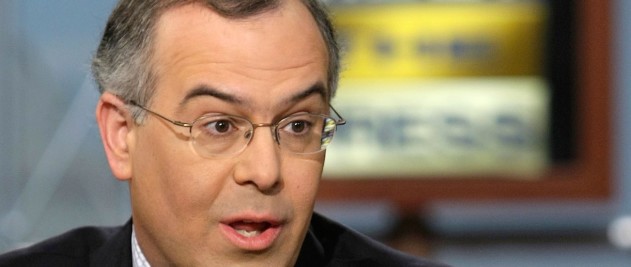David Brooks devoted his column Tuesday to bemoaning moral relativism. The most sensational example Brooks trots out to highlight the lack of morals among the poor and uneducated comes from Robert Putnam’s Our Kids, his new book about the opportunity divide between college- and high school-educated America. It involves Elijah, a boy with a troubled past, who talks about enjoying beating people up. While this example may help to support his thesis, moral-absolutist Brooks fixates on the immorality of a literal beating while remaining blind to the myriad ways the underclass in this country are metaphorically pummeled on a daily basis. Where is his empathy for them?
Brooks has inverted the axiom “with great power, comes great responsibility” to expect the most from those of us with the least. His grandstanding about the culture of poverty is disingenuous and dangerous, and lamenting the so-called “breakdown of family” without a mention of unions weakened from decades of assault, an economy tanked through the selling of toxic mortgage assets, or a dwindling safety net—as though these are not “moral” issues—is obscene.
We need to talk about the pathology of the wealthy in this country, and why the antiseptic judgments and decisions of powerful people that ruin lives from a safe distance always seem to escape scrutiny.
Let’s talk about how a poor, homeless, unemployed mother who left her child in the car to go to a job interview was arrested, publicly shamed and humiliated, and ultimately held responsible for her hardships. But a bank executive, with one stroke of a pen, can cause thousands of struggling families to be bankrupted or lose their homes—state legislators can give tax breaks to the rich while cutting funding for the food stamps that keep children fed and out of poverty—and they not only keep their jobs, they often get raises and promotions.
The latter examples may happen in fancy offices or government buildings surrounded by people in suits, but these choices cause ripple effects that negatively impact thousands, maybe millions, of already-struggling Americans. But integrating a system of ethics that addresses impact into our institutional decision-making is not the kind of morality Brooks is concerned with. Even with his calculated acknowledgment that well-educated, privileged folks are not necessarily “beacons of virtue” and suffer from their own “characteristic forms of self-indulgence,” the piece still reads as a clear indictment of the poor.
It is not just “money and better policies” that are absent from “these circles,” Brooks argues, discounting the impact of good economic and social policies in a comically baseless way, while leaving no question which “circles” he means. No, according to Brooks, we need a new moral vocabulary that sets better norms: “These norms weren’t destroyed because of people with bad values,” he says. “They were destroyed by a plague of nonjudgmentalism, which refused to assert that one way of behaving was better than another.”
Charles Murray essentially made the same argument in his 1984 book Losing Ground, which became the intellectual foundation of welfare reform. Just as Murray argued that poor welfare recipients weren’t entirely to blame (they were responding rationally to an incentive system created by a well-meaning but misguided “intelligentsia” which kept them locked in a cycle of poverty) Brooks pulls a similar rhetorical sleight. He feels sympathy for those caught in the cycle of economic stress and family breakdown, arguing that societal norms weren’t destroyed (initially, at least) by poor people with bad values, but rather by the “plague of nonjudgmentalism.” I can only assume he believes this plague was spread by liberal elites, constantly touting their hippy values like acceptance and tolerance.
A casual scan of the political landscape makes it hard to take seriously his contention that we don’t heap enough judgment on poor uneducated people in this country. We are talking about the same country that regularly refers to poor people as government parasites, claims single mothers want government to be their “daddy,” and treats systemic inequality as the result of individual pathology, right?
Note to Brooks: If you frame your argument around the problem with moral relativism, no one will believe you are being genuine when you say that “everyone” should be condemned and held equally accountable for their “immoral” behaviors. You have already made it crystal clear that you do not see the transgressions of the privileged and underprivileged as moral equivalents.
Nicole Rodgers is the Founder and Editor-in-Chief of RoleReboot.org.
Related Links:

